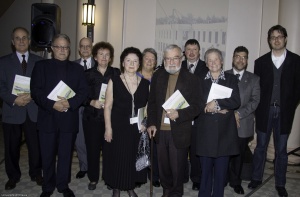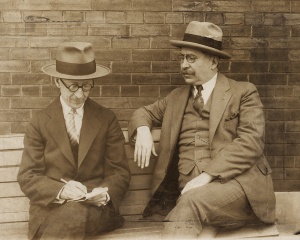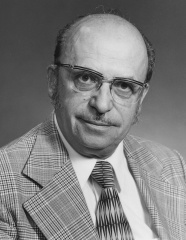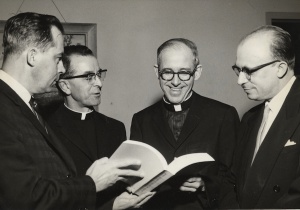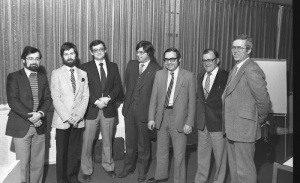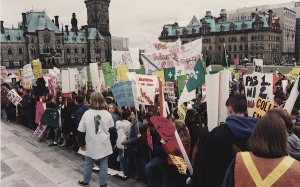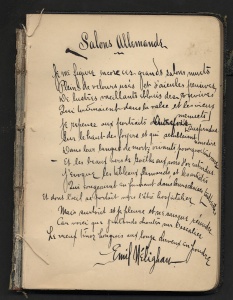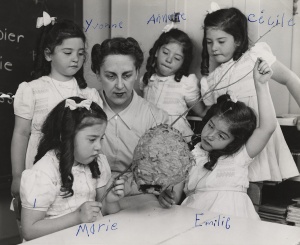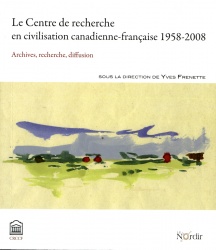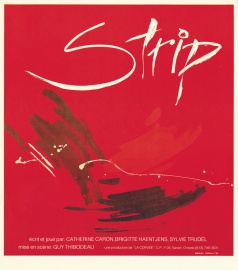Centre de recherche en civilisation canadienne-française (CRCCF)
par Bonsaint, Nicole
The Centre de recherche en civilisation canadienne-française (CRCCF) (Centre for Research on French Canadian Culture) is the oldest research centre on the literature, culture and history of French Canada. In this respect, the CRCCF stands out and plays a leading role through its research, publication, dissemination, acquisition and preservation of a rich collection of archives. The Centre, a scholarly and cultural organization, is the main body preserving the collective memory of French Ontario, which it enhances through interuniversity initiatives, colloquia, exhibits, lectures and publications, to encourage the advancement and development of this culture.
Article disponible en français : Centre de recherche en civilisation canadienne-française (CRCCF)
At the beginning, a core of researchers
The founding of a research centre on French-Canadian literature at the University of Ottawa, in 1958, took place at a time when this literature was setting itself apart from the literature of France, which until then had been considered as the only literature of value in the Francophone world. In 1860, the emergence of the École littéraire de Québec (Quebec Literary School), at the instigation of Abbé Henri-Raymond Casgrain, played an important role in the history of this homegrown literature, as did the École littéraire de Montréal, founded in 1895, which included writers and poets such as Jean Charbonneau, Albert Ferland, Louvigny de Montigny, and Émile Nelligan. Father Louis-Marie-Cyprien Le Jeune, professor of rhetoric at the University of Ottawa, proved his interest in the history of this literature by founding the Revue littéraire de l’Université d’Ottawa in 1900. The research continued until the middle of the century thanks to the work of dedicated people such as Séraphin Marion, a civil servant and professor of Canadian literature at the University of Ottawa from 1926 to 1954.
In 1951 Paul Wyczynski, a young researcher who had recently come from Poland, wrote a doctoral dissertation on Émile Nelligan while teaching literature at the University of Ottawa. Passionately devoted to studies in French-Canadian literature, he hoped to create a welcoming place that would be a milieu for researchers. He spoke of his ambitions to three of his colleagues, Father Bernard Julien, Jean Ménard, and Réjean Robidoux. Then, on 5 June 1958, he presented to the dean of the Faculty of Arts, Father René Lavigne, and to the rector, Father Henri Légaré, his remarks on the possibility of creating a research centre for French-Canadian literature (Centre de recherche sur la littérature canadienne-française, CRLCF). In July of that year, the four colleagues presented a memorandum to the rector, requesting resources to set up this future centre. On 2 October 1958, the CRLCF was born, the first of its kind in Canada.
The founders had to make do with the limited resources available to them. According to Paul Wyczynski, "we had to create everything, invent everything, build the foundations, the walls and the roof at the same time"(Note 1). The CRLCF was housed in the Department of French in the first years; then the Faculty of Arts provided space where a library and a collection of archives could be established, as well a space for researchers to exchange ideas and to work. Wyczynski had already started gathering a collection of books, journals and various documents well before the Centre was founded, and from 1966 to 1968, acquisitions of archives grew spectacularly. The collection increased by 3,500 books, about fifty journals, as well as manuscripts, photographs, about 500 microfilm reels, about a hundred records, and innumerable newspaper clippings.
The Centre's mission
The original vision of the CRLCF, based on research, was soon expanded. From 1959 to 1962, the Centre was called on to play a teaching role by contributing to the creation of seven graduate courses and two undergraduate courses in the Department of French on French-Canadian literature. The subjects varied according to the professors' areas of interest; courses were offered on writers, French-Canadian sociology, and comparative study of North American literatures.
This intellectual ferment led to increased numbers of master's theses and doctoral dissertations on leading figures in this literature: Octave Crémazie, Arthur de Buissière, Albert Lozeau, Charles Gill, and many others. Ten years after it was founded, the Centre was already responsible for five series of publications: "Archives des lettres canadiennes", "Visages des lettres canadiennes", "Voix vivantes", "Présence", and "Les Cahiers du centre de recherche en littérature canadienne-française". These publications contributed to the study of literary history, authors, poetry, critical editions, and literary studies.
Thanks to the lectures and exhibits it organized, the CRLCF became an important part of French-Canadian intellectual life. It hosted writers and artists such as Louis-Joseph Doucet, Guy Sylvestre, Gérard Bessette, Suzanne Paradis, Alfred Desrochers, Gilles Vigneault, Yves Thériault, Claire Martin, Robert Choquette, Félix-Antoine Savard, and many others.
Necessary changes
In view of its success in the French-Canadian intellectual community, the Centre considered ways to enlarge its mandate. In 1967-1968, the CRLCF created the position of director of publications for the five series, and the following year it became interdisciplinary by including literature, history and fine arts in its areas of interest. Its name was changed to Centre de recherche en civilisation canadienne-française (CRCCF), or in English, Centre for Research on French Canadian Culture.
Another major change occurred on 1 July 1973, when Paul Wyczynski announced his departure after 15 years of leading the Centre. He was succeeded by Pierre Savard, a historian specializing in the history of ideas, culture and religion in French Canada. The new director, more open to other disciplines, made some changes in administrative structure. The Centre, which had until then been attached to the Faculty of Arts, in 1978 became part of the School of Graduate Studies and Research, which better reflected its interdisciplinarity. Between 1970 and 1985, the CRCCF's influence was unparalleled thanks to its research activities, publications, conferences and lectures, and to the energy of its director. This growth coincided with the development of Franco-Ontarian literature studies.
The second half of the 1980s and the early 1990s were marked by budgetary restrictions in public services, including higher education. Under the direction of Yolande Grisé (1985-1997), the CRCCF faced drastic budget cuts that threatened the Center's very existence. An external evaluation carried out in 1989 and a number of administrative changes in 1992 and 1997 suggested an uncertain future for the CRCCF. There was even talk of amalgamation with the Institute of Canadian Studies, but protests arose from everywhere in the Franco-Ontarian community, and the University gave up the idea.
The Centre took advantage of these difficulties by changing, adopting new statutes, and modernizing its structure. Robert Choquette (1997-2000) and Jean-Pierre Wallot (2000-2006) made the CRCCF part of institutional research at the turn of the twenty-first century, opening it to social sciences and to Canadian Francophonie.
During his term from 2007 to 2010, Yves Frenette brought to the Centre's activities the perspective of his twenty years of experience in research and teaching the history of North American Francophonie. In his view, this opening up expressed the solidarity of the continent's Francophones, wherever they lived. More concretely, he organized the Centre's actions around important events of the decade: 2008, the 50th anniversary of the Centre's founding; 2010, the 400th anniversary of the arrival of the first Frenchman in what was to become Ontario, as well as the centennial of the Association canadienne-française d’éducation de l’Ontario (ACFEO). In addition, Frenette contributed greatly to increasing the Centre's visibility in the areas of archives, research and publication, by multiple collaborations with researchers from other countries. The award of the prestigious Prix du 3-Juillet-1608 to the Centre on 30 September 2009 also increased its visibility within the University of Ottawa and in all of North American Francophonie (Note 2).
A rich collection of documents
The Centre's collection developed gradually between 1958 and 1980 based on what the founding researchers collected, even before the CRLCF was founded. At that time, Paul Wyczynski was in close contact with the members of the École littéraire de Montréal because of his doctoral research on Émile Nelligan. A note from the "mémoire des quatre" of 5 August 1958 recounts the beginning of this collection: "Stored at Father Julien's and Paul Wyczynski's places, a collection was found [including] the archives of Jean Charbonneau, and of Louvigny de Montigny, literary and iconographic documents concerning Baston de Montigny and Charles Gill, and letters of Joseph Melançon, Louis Dantin, Gonzalve Desaulniers, Émile Nelligan, Gérin-Lajoie... [...] We are also the only Canadian university to have on microfilm all the minutes of the École littéraire de Montréal." (Note 3)
The enlargement of the Centre's mission and the reorganization of its archives, after an archivist was hired in 1968, attest to its vitality. The following year, the Association canadienne-française de l’Ontario (ACFO) decided to entrust its archives to the CRCCF. This date marks an important step in developing the collection, and in particular, confirms the Centre as a place of documentary memory of Franco-Ontarians.
The new acquisitions tripled the content of the collection compared to the first decade; the Centre's documentary resources increased to 232 archive collections in 1980, then to 307 in 1985, not to mention the periodicals, newspapers, and reference works in the library. In 2011, the CRCCF had more than 525 archive collections including textual, photographic, sound, moving picture, and other documents, all accessible through a data base, part of which is accessible online on its website and on those on the Canada and Ontario archive information networks.
This activity also helped to diversify the areas of acquisition of the Centre's archives, through four development themes: Culture of French Canada, Ottawa and the Outaouais, Francophones of Ontario, French Canada and Canadian Francophonies. The CRCCF's archives thus constitute a remarkable common heritage and display an important part of French culture in Canada.
New orientations for the CRCCF
The founders of the Centre were pioneers in studying and promoting the literature of Quebec. Their successors, by widening its perspectives to other disciplines, contributed to the emergence of the now-vigorous field of studies on Canadian Francophonie. Their multidisciplinary approach to its life and their stimulating activities have played a significant role in the emergence of a modern Franco-Ontarian identity.
Anne Gilbert, director since July 2010, plans to take up the challenge of keeping the CRCCF in its enviable position within the University of Ottawa and in the wider community of research on North American Francophonie. She is working with various university and community partners, to develop new interdisciplinary research projects on the cultures and societies that have formed the history of Canadian Francophones. The research, spurred on by three research chairs on Canadian Francophonie associated with the CRCCF and by the other specialists in Francophonie working around the Centre. will be organized in five independent areas: literature and theatre, education, institutions and associations, language, and the National Capital Region. Interdisciplinarity and convergence will guide the initiatives (Note 4).
Guarding a precious cultural heritage
The CRCCF is now the main archive centre for French Ontario, and one of the most important for Canadian Francophonie. Its collection reflects the gradual transformation of French Canada, from a single identity to multiple identities. Its archives also constitute an important corpus of primary sources, essential for research in the various disciplines of the humanities and social sciences. It is thus a remarkable resource on French culture in Canada, offered to university researchers as well as to the general Francophone and francophile public. For more than half a century, the Centre been part of the impetus of North American Francophonie and considers it an immense privilege to be able to contribute to this great adventure.
Nicole Bonsaint
Archivist, audiovisual et photographs, CRCCF
Additional DocumentsSome documents require an additional plugin to be consulted
Images
-
 Affiche du colloque L
Affiche du colloque L
es autres litté... -
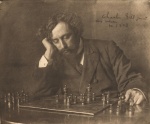 Charles Gill, peintre
Charles Gill, peintre
, auteur et mem... -
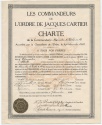 Charte de la Commande
Charte de la Commande
rie Alexandre-A... -
 Claire Martin, auteur
Claire Martin, auteur
e et traductric...
-
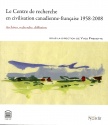 Cover page of the CRC
Cover page of the CRC
CF's centennial... -
 Demonstration for a n
Demonstration for a n
etwork of Frenc... -
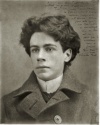 Émile Nelligan, au dé
Émile Nelligan, au dé
but de 1899 -
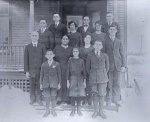 Famille de Napoléon D
Famille de Napoléon D
emers arrivée à...
-
 Franco-Ontarian week
Franco-Ontarian week
at the Universi... -
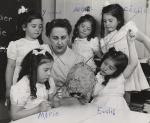 Gaëtane Vézina, surro
Gaëtane Vézina, surro
unded by the fa... -
 Henri Fabien, peintre
Henri Fabien, peintre
et sculpteur, ... -
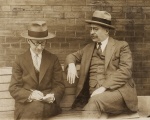 Jean Charbonneau, wri
Jean Charbonneau, wri
ter, translator...
-
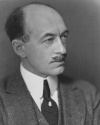 Jules Tremblay, poète
Jules Tremblay, poète
, historien, au... -
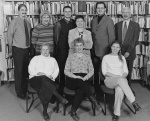 L’équipe du CRCCF dan
L’équipe du CRCCF dan
s le cadre du p... -
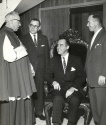 L’ouverture de la Mai
L’ouverture de la Mai
son franco-onta... -
 Launch of the CRCCF's
Launch of the CRCCF's
50th anniversa...
-
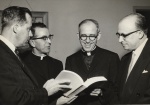 Launch of volume III
Launch of volume III
of the collecti... -
 Parchemin Prix du 3 j
Parchemin Prix du 3 j
uillet – 1608 -
 Paul Wyczynski, desig
Paul Wyczynski, desig
nated professor... -
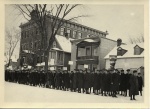 Piquet de grève des i
Piquet de grève des i
nstituteurs dev...
-
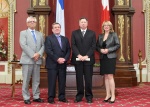 Remise du Prix du 3-J
Remise du Prix du 3-J
uillet-1608 au ... -
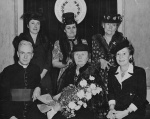 Représentantes de l'e
Représentantes de l'e
xécutif nationa... -
 Salons allemands", a
Salons allemands", a
sonnet from "Pa... -
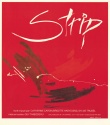 The play "Strip" at t
The play "Strip" at t
he Théâtre d’la...
Vidéo
Catégories
Notes
1. "Paul Wyczynski, essayiste, critique et historien des lettres: interview", Lettres québécoises, no 42, summer 1986, p. 43.
2. As Yves Frenette pointed out in his remarks at the presentation of the prize at the Quebec Assemblée nationale. See "Allocution d'Yves Frenette", in Centre de recherche en civilisation canadienne-française, Rapport annuel 2009-2010, Ottawa, CRCCF, 2010, p. 11.
3. Bernard Julien, o.m.i., Paul Wyczynski, Réjean Robidoux, o.m.i., and Jean Ménard, "Centre de recherches sur la littérature canadienne-française", in Centre de recherches sur la littérature canadienne-française, Rapport annuel 1958, Ottawa, CRLCF, 1958, p. 1.
4. This is in accordance with the Plan d’action du Centre de recherche en civilisation canadienne-française (CRCCF) 2007-2013, prepared by Yves Frenette, Director, in November 2007.
Bibliographie
Centre de recherche en civilisation canadienne-française, La collection des fonds d’archives du CRCCF : l’aventure du Canada français [en ligne], exposition virtuelle, http://www.crccf.uottawa.ca/exposition_virtuelle/collection_fonds_archives/index.php.
Centre de recherche en civilisation canadienne-française, Rapport annuel 2009-2010 [en ligne], Ottawa, CRCCF, 2010, 18 p.,http://www.crccf.uottawa.ca/publication/rapport_annuel_2009_2010.pdf.
Frenette, Yves (dir.), Le Centre de recherche en civilisation canadienne-française, 1958-2008 : archives, recherche, diffusion, Ottawa, CRCCF et Le Nordir, 2008, 131 p.
Gilbert, Anne, Le Centre de recherche en civilisation canadienne-française (CRCCF) : vision 2015 [en ligne], janvier 2011, 7 p.,http://www.arts.uottawa.ca/documents/pdf/agov/Centre-de-recherche-en-civilisation-canadienne-francaise.pdf.

